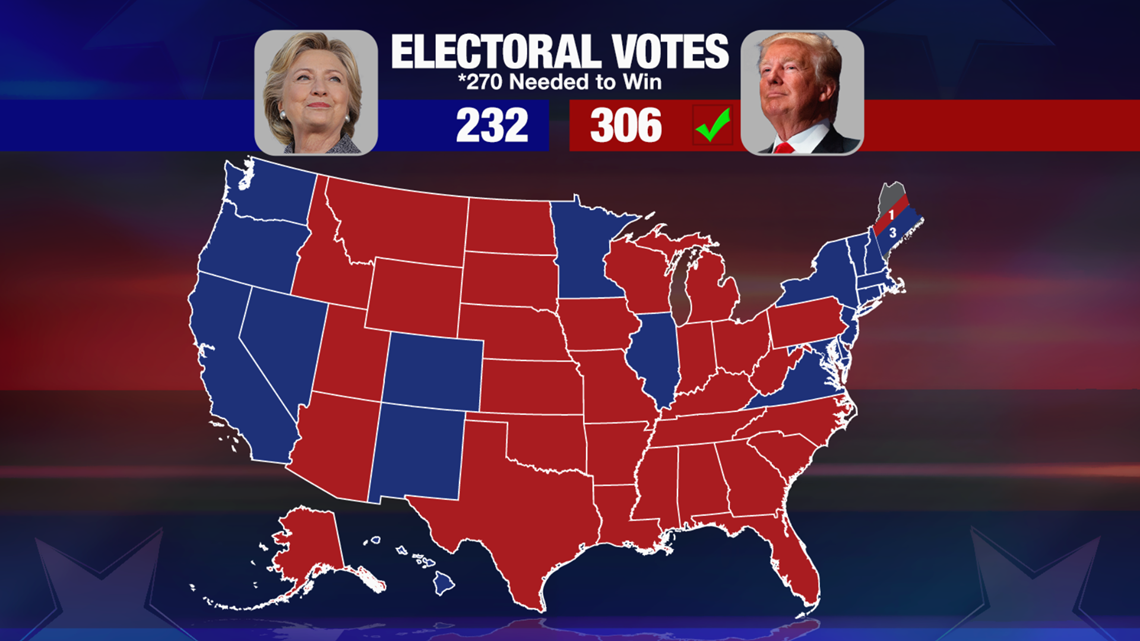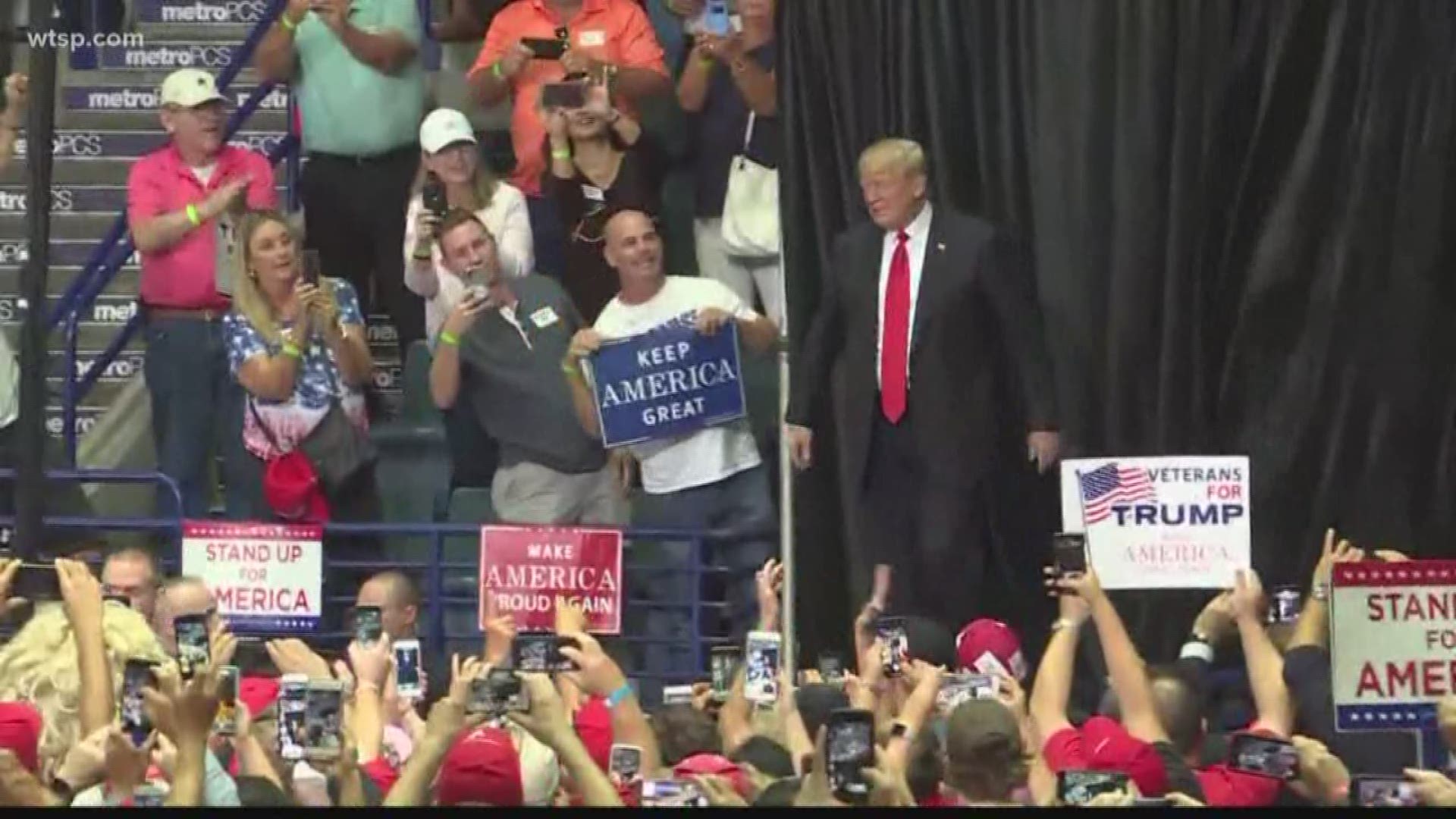WASHINGTON, D.C., USA — We live in a democracy, right?
Wrong.
The United States is a representative republic.
Merriam Webster defines that form of government as one “in which supreme power resides in a body of citizens entitled to vote and is exercised by elected officers and representatives responsible to them”.
Basically, that means citizens elect leaders who make decisions on their behalf.
In a presidential election, the process runs through electors in each state, whose votes determine the outcome of the electoral college – and pick the president.
Normally, those electors – chosen by political parties – cast their votes based on the popular vote in their state.


But there are exceptions.
According to the Associated Press, ten electors in 2016 voted for the candidate who did not win the most votes.
They’re known as “faithless electors.”
AP reports about 30 states require electors to cast their vote based on what the citizens decide, but that means the electors in 20 states don’t have to.
The federal appeals court in Denver ruled that electors can vote as they please.
In Washington, the state Supreme court upheld a $1,000 fine against three electors who refused to support the will of the people.
Now, the U.S. Supreme Court is preparing to weigh in.
The justices said Friday they will decide before the 2020 election whether all electors should be required to abide by their state’s popular vote, AP reports.
Considering the current political polarization, that could be critical – especially if the election is close.
What other people are reading right now:
- Wall collapse at construction site in Haines City kills worker
- Clearwater Police searching for missing man
- Florida man beats roomate with baseball bat causing brain injury
- Woman pleads guilty to poisoning husband with eye drops
- Restaurant Red Alert: Beach bar owner blames rat problem on neighboring construction site
- Giants make Alyssa Nakken first female major league coach
- Attention viewers: WTSP is undergoing planned work on our tower



